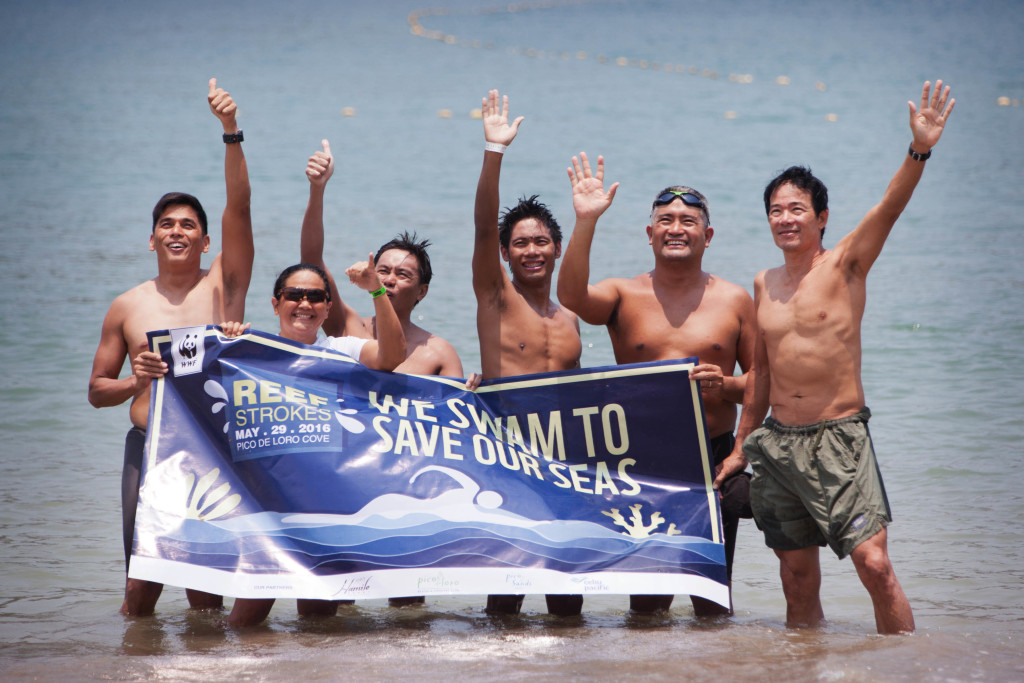
Six open-water athletes swim for the protection of coral reefs and the Verde Island Passage. Photo by WWF Reef Strokes
Six Filipino open-water athletes swam together in a bid to raise public awareness on the conservation of coral reefs, particularly the protection of the Verde Island Passage.
Ingemar Macarine, Frank Lacson, Betsy Medalla, Julian Valencia, Moi Yamoyam and Miguel Villanueva joined the World Wide Fund for Nature’s (WWF) “Reef Strokes” event, an open-water marathon last Sunday aiming to highlight the impact of plastic pollution and climate change on the Verde Island Passage.
“As a swimmer who regularly swims in open water, I am disheartened each time I encounter floating garbage. We swim to remind everyone that we need to act now to protect our marine resources,” said Macarine, a lawyer who was awarded by WWF-Philippines as “Hero of the Environment” for his efforts in raising marine conservation awareness.
Coach Medalla, the first to finish the ten-kilometer swim, said it was important for open-water swimmers like her as “natural stewards of the sea” to “inspire more people to swim and protect the beautiful Philippine seas.”
The Verde Island Passage, located in between the provinces of Batangas, Mindoro, Marinduque and Romblon, was dubbed the “center of the center of marine shorefish biodiversity.”
Sitting at the center of the Coral Triangle, which is the world’s epicenter of marine life, it has a record of 319 species and 74 genera of hard coral and also a rich production area for fishing.
“Ang huli ng mga manlalambat ay umakyat ng dose kilos kada-araw. May dagdag namang isang kilo kada araw ang huli ng mga namimingwit. Mas-marami po ito kaysa dati sapagkat naprotektahan na ang mga tirahan ng isda,” said Adelito Villaluna, a local fisherman.
(Our [fishermen using nets would] catch up to 12 kilos every day. There is an additional one kilo every day for the hook-and-line fishermen. This is higher than before because the fishes’ habitat is protected.)
“Reef Strokes” was organized by WWF, Hamilo Coast, Pico Sands Hotel, Pico de Loro Beach & Country Club and Cebu Pacific Air.
WWF-Philippines President and CEO Joel Palma said that while coral reefs provide food and livelihood to millions of Filipinos, they were also being threatened by plastic waste and effects of climate change.
“Climate change effects such as global warming also lead to coral bleaching, turning once-productive reefs into graveyards coated by algae. Reef Strokes shows how our collective ‘strokes’ will take us to the finish line, which is a world where productive oceans continue to gift Filipinos with food, jobs – even the very air we breathe,” Palma said. TVJ
RELATED STORIES
Beach resorts pollute Verde Island Passage
Rare seahorses spotted for first time in PH

